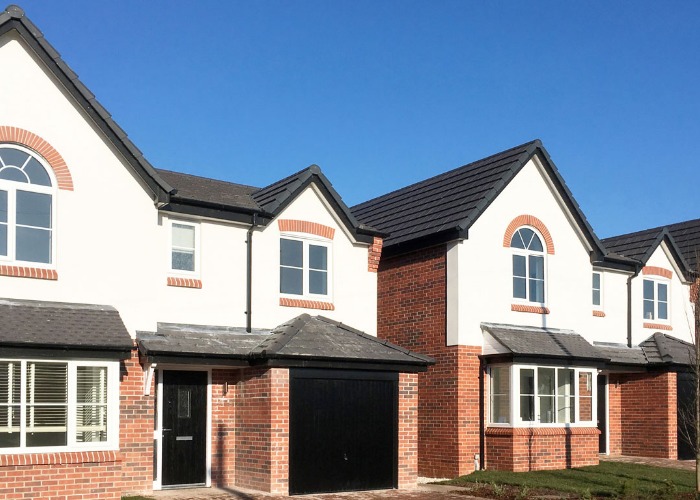Five years of Help to Buy: is the scheme really working?

As new research reveals those earning £50k a year are getting the most from the government’s Help to Buy scheme, we take a look at whether it's delivering on its promises and what's next for the first wave of borrowers
When it was introduced in April 2013 the Help To Buy scheme seemed like the answer to many a would-be property owner's prayers.
It was hailed as one answer to the house crisis, giving hardworking first-time buyers and those on a low-incomes hope that they could own their own home.
But five years later, how valuable has the scheme been and what's next for those coming to the end of the deal? Here we find out...
Could the scheme be scrapped?
New research has highlighted that Help To Buy is increasingly being used by those in a higher wage bracket, analysis of government data by the newspaper The Independent reveals.
In addition, as many as 20% of those using the scheme are already homeowners with a higher income than first-time buyers.
The news has been met with dismay by ministers and opponents to the scheme who believe that the government’s promise of billions of pounds into Help to Buy could be better spent elsewhere.
“Deep cuts to housing investment mean that the number of new low-cost homes to buy like shared ownership have halved since 2010, and badly targeted schemes like Help to Buy aren’t focused on those who most need a hand up," says John Healey, the Shadow Housing Secretary.
Official government data shows that the average household income of those benefitting from the scheme now stands at just under £50k – a rise of almost £10k since the scheme began. This accounts for an increase of 35% despite the fact that wages over the same period have only increased by 6%.
This figure shoots up in London, too, where property prices are higher, and beneficiaries from the scheme have an average household income of £72,000.
The Resolution Foundation, which has long poured scorn on the scheme, has called for it to be scrapped, suggesting it is actually driving house prices up.
In a report it said: “HTB appears to have served a useful purpose when it was first introduced – restoring confidence to developers and promoting a pickup in house building. But its effect looks increasingly distortionary, suggesting that it may be time to phase it out.”
 Prime Minister Theresa May, Chancellor Philip Hammond (left) and Home Secretary Sajid Javid (right) at a home purchased via Help To Buy in Walkden, Salford during 2017. Photo: Hannah McKay/PA Archive/PA Images
Prime Minister Theresa May, Chancellor Philip Hammond (left) and Home Secretary Sajid Javid (right) at a home purchased via Help To Buy in Walkden, Salford during 2017. Photo: Hannah McKay/PA Archive/PA Images
How does Help To Buy work?
Help to Buy offers potential homeowners loan to enable them to buy a property with as little as a 5% deposit and a 20% equity loan.
For example on home worth £200,000, the buyer would need to find a 5% deposit (£10,000), the government would provide an equity loan of 20% (£40,000) and the remaining £150,000 coming from a mortgage via a high street lender.
For the first five years the loan is both fee and interest free. After, the interest is 1.75% and will rise each year. The rest of the property's value can be bought using a standard mortgage deal.
What happens when Help To Buy comes to an end?
For those looking to take the next steps post Help To Buy, the situation certainly isn't as terrifying as some national newspaper headlines would have you believe.
"One option is to incorporate the remaining amount in the equity loan into a new mortgage deal," says Peter Gettins Product Manager with London & Country Mortgages. "It is also possible to leave the equity loan in place, but that does involve more fees and paperwork, with Barclays the lender that springs to mind if that's the option for you."
The only difficulty with rolling the government portion of the loan into a new mortgage is if the value of your home has gone up significantly. In that instance, you'd be looking at a greater loan to value ratio and would also need to pass affordability checks. Assuming your financial circumstances haven't changed drastically, the good news is that lenders are looking to help.
"Nationwide have said they will offer a 90% mortgage and Ipswich Building Society 95%. Interest rates for these mortgages are around 1.89% which is certainly a more attractive proposition than the Standard Variable Rate (SVR) you'd be on if you did nothing, which is usually north of 3%," says Peter.
So if you're currently coming to the end of Help To Buy it's definitely worth shopping around and speaking to mortgage broker sooner rather than later.
READ MORE: The Help To Buy hotspots winning over first-time buyers
Comments
Be the first to comment
Do you want to comment on this article? You need to be signed in for this feature